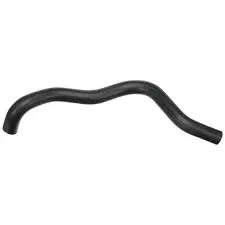diesel transfer hose
តុលា . 20, 2024 05:19 Back to list
diesel transfer hose
Understanding Diesel Transfer Hoses A Comprehensive Guide
In industries where diesel is a primary fuel source, the efficiency of transferring fuel from one location to another is of paramount importance. To facilitate this process, a crucial component is the diesel transfer hose. This article will delve into the details of diesel transfer hoses, covering their types, features, applications, maintenance, and safety considerations.
What is a Diesel Transfer Hose?
A diesel transfer hose is a flexible conduit designed specifically for the movement of diesel fuel. These hoses are integral to various operations, ranging from fueling vehicles at gas stations to transferring fuel between tanks in industrial settings. Their construction is tailored to withstand the chemicals in diesel, ensuring durability and safety during operation.
Types of Diesel Transfer Hoses
There are several types of diesel transfer hoses available in the market, each suited for specific applications
1. Soft Wall Hoses These hoses are lightweight and flexible, making them ideal for short-distance transfers. They can handle low to moderate pressure but are not suitable for high-pressure applications.
2. Reinforced Hoses Constructed with layers of synthetic materials, reinforced hoses provide additional strength, enabling them to handle higher pressures and more rigorous operational demands.
3. Food-Grade Hoses For applications involving biodiesel or where fuel purity is necessary, food-grade hoses made from non-toxic materials are essential. They ensure that no harmful chemicals leach into the fuel.
4. Heavy-Duty Hoses These are designed for both high-pressure and high-temperature applications, making them perfect for industrial use. They typically include a robust outer layer to resist abrasion and damage.
Key Features
When selecting a diesel transfer hose, certain features are critical
- Material Most diesel transfer hoses are made from synthetic rubber or PVC, which offers excellent chemical resistance
. Additionally, hoses may have inner linings to reduce friction, increasing flow efficiency.- Temperature Resistance Diesel fuel can be subjected to various temperatures. Selecting a hose that can withstand both hot and cold temperatures is crucial to ensure safe operation.
- Pressure Rating It is vital to consider the maximum pressure that the hose can handle. Overloading a hose beyond its rated pressure can lead to failures and safety hazards.
diesel transfer hose

- Length and Diameter The size of the hose will depend on the specific application. Longer hoses allow for greater reach, while wider diameters facilitate faster fuel transfer.
Applications
Diesel transfer hoses are commonly used in various applications, including
1. Commercial Fuel Stations Hoses are essential for dispensing fuel into vehicles and machinery.
2. Industrial Operations Many factories and construction sites rely on diesel-powered equipment, requiring frequent refueling.
3. Agriculture Farmers use diesel transfer hoses to fuel tractors and other agricultural machinery.
4. Marine Applications Boats and ships often require diesel fuel transfer hoses for fueling operations at docks.
Maintenance and Safety Considerations
Proper maintenance and safety protocols are vital to ensure the longevity and safety of diesel transfer hoses
- Regular Inspections Routinely check hoses for signs of wear, cracking, or leaks. Any damaged hoses should be replaced immediately to prevent spills and accidents.
- Proper Storage Hoses should be stored in a cool, dry place away from direct sunlight, which can degrade the material over time.
- Avoid Overuse Using hoses beyond their intended operational limits can lead to malfunction. Always adhere to the manufacturer’s specifications regarding pressure and temperature.
- Emergency Preparedness Equip your facility with absorbent materials and spill containment kits to handle potential leaks or spills swiftly and safely.
Conclusion
Diesel transfer hoses are essential components in the safe and efficient transfer of diesel fuel across various applications. Understanding the types, features, and maintenance needs of these hoses can ensure their effective operation and longevity. By prioritizing safety and proper usage, industries can continue to rely on diesel transfer hoses for their fueling needs, thus supporting smooth and continuous operations. Whether you're operating a small farm or a large industrial facility, selecting the right hose and maintaining it properly will lead to a more efficient and reliable fuel management system.
